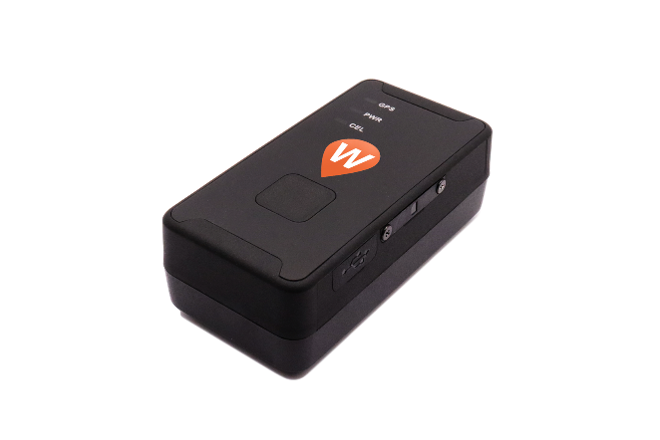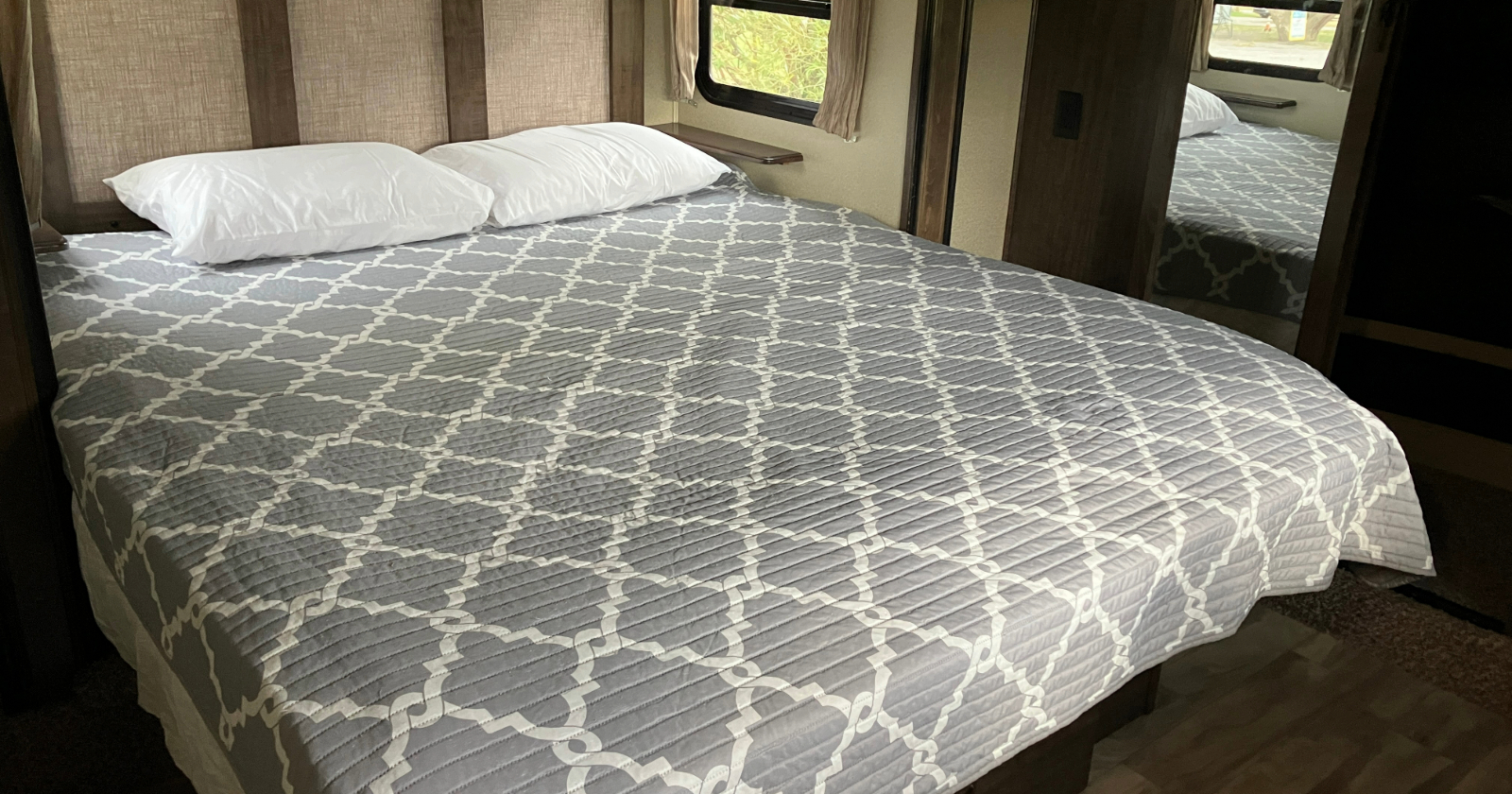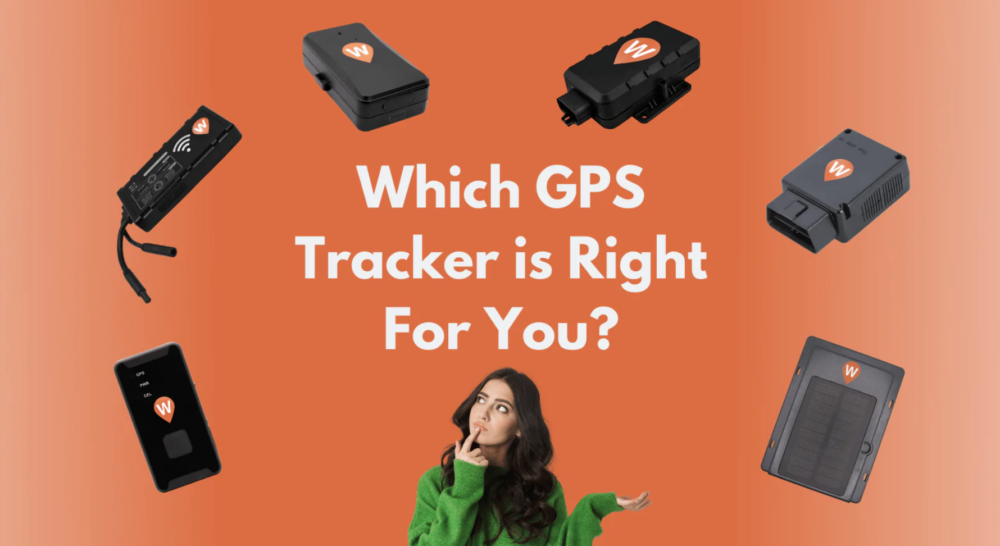
Sponsored by WhereSafe
Do All GPS Trackers Work on Every RV Type?
This is a common question that has good merit. Not all RVs are the same, nor is every GPS tracker. What your RV investment looks like, as well as how you use your RV, can dictate what type of GPS hardware works best for your scenario.
In speaking with GPS tech provider WhereSafe GPS, they explained the different pieces of hardware and how they work best on various types of RVs, like towable teardrops, 40’ fifth wheels, and Class A, B or C RVs. It is also important to consider how your RV is used and stored. For example, if you rent your RV often as a source of income, compared to if your RV is stored offsite for six months a year, you may require different programming and software options.
One constant, however, is the desire for many RV owners to always know where their RV is, simply by looking at an app on their phone or by getting notified in real-time if it moves, if it’s in a location that it shouldn’t be, if it is being tampered with, or if it is moving too fast.
I Drive a Class B or C RV
Class B and C RVs all (or at least the vast majority built after 1996) have an onboard diagnostic port known as an OBDII port. This port ties directly into the computer system and network of sensors.
The OBDII port is generally located under the steering wheel. Its most common use is for technicians to plug into it to get diagnostic information from the RV’s computer for troubleshooting purposes.
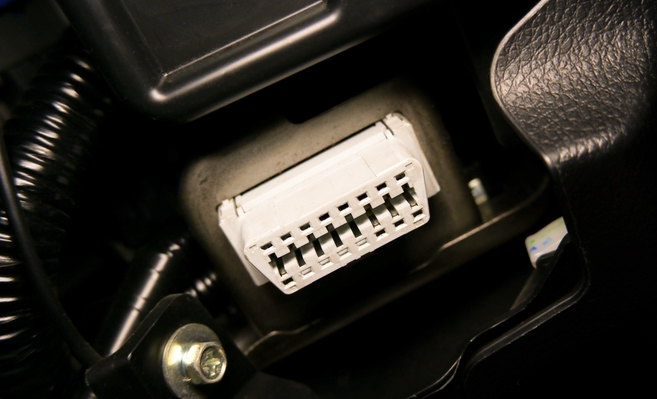
ODBII/ODB2 GPS Tracker
There are specific OBDII GPS trackers that plug directly into this port. These are extremely easy to install; simply plug it in and it will begin tracking the real-time location of your RV.
Some RV owners may want this particularly for theft protection. In that case, it may seem as if this GPS device is a little obvious and a thief could simply unplug it. First off, it has an internal back-up battery that will still keep tracking for a few hours when unplugged.
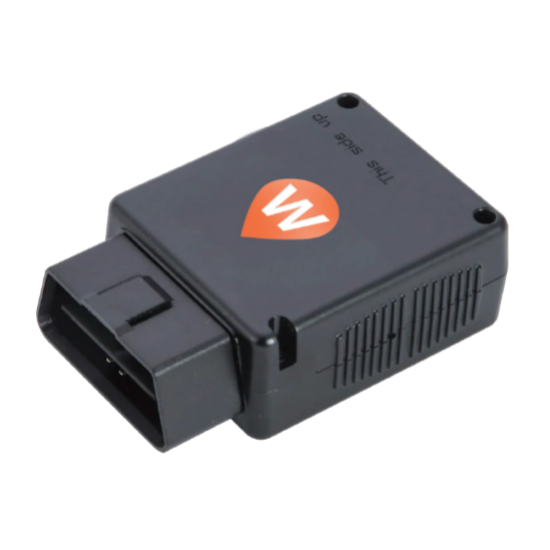
For a more covert installation, a very inexpensive accessory known as a Y-Cable is available so you can leave the port still available and hide your OBD GPS tracker up under the dash.
Other users who are using GPS for their rental RV and want to know that the RV is not in restricted areas, or that it is not driving too fast, or to get data back about events during the rental, can simply plug it in.
I Drive a Class A Motorhome
Class A motorhomes generally do not have OBDII ports. Instead, these largely diesel-powered vehicles use a different, more cumbersome 6 or 9 pin type 2 diagnostic port. GPS trackers that plug directly into these ports are non-existent or at least extremely hard to find.
Therefore, the most suitable GPS tracking options for Class A motorhomes is a hardwired GPS tracker. As the name suggests, these devices do require a wired installation. The WhereSafe Rugged GPS tracker is an ideal option. This unit is built to withstand extreme conditions, allowing it to be installed on the exterior of your RV if that is easier or more convenient, or it can be mounted internally. In general, we suggest having a qualified technician do this install; however, if you are a capable DIYer, the wiring is quite simple and requires only power, ground, and ignition.
Another hardwired option that is not as rugged is the Wi-Fi Tracker. This is a hardwired GPS tracker that is also a WiFi hotspot, so you can buy internet data while on the road or to sell to your RV renters.
I Own a Towable RV. Is There a GPS Tracker for Me?
Towables may or may not have a reliable constant source of power. Or when onboard batteries are present, keeping them charged is always paramount, and having accessories with a constant draw is not ideal. Real-time GPS tracking requires ongoing battery power.
For this reason, portable battery-powered and rechargeable GPS trackers are often the hardware of choice for small pop-up campers to large fifth wheel trailers. The WhereSafe MiniMax GPS tracker is very versatile and perfect for towables. It can be simply placed in a compartment/drawer, or using its waterproof magnetic cradle, it can be magnetized to any metallic surface inside or out of the RV. On a single charge, the MiniMax can last over 20 days; however, with its trickle charger tied onto a 12V power source, you can set it and forget it.
Other portable rechargeable GPS trackers include the XTracker Solar and the bestselling MagTracker.
What if My RV Gets Used A Lot?
The more an RV moves, the more the GPS tracker will ping the GPS satellites orbiting earth. When not moving, the tracker will only ping once every 12 hours, and once the tracker senses motion, it wakes up and begins pinging every two minutes.
Each ping eats up more battery life. With that said, if you are constantly on the move, or renting your RV often, you will drain batteries more quickly, and you might elect to go with an OBD, hardwired, or trickle-charged option to keep it connected to a constant power source.
My RV Spends a Lot of Time In Storage Or Stationary at Campsites
In this case, you may have taken the battery out of your RV, or batteries could be low and installed hardware that requires constant power might not be a good fit.
A long-life battery-powered GPS tracker is likely the best option. The XTracker Solar can stay charged over a year and has an integrated solar charger, or it can be trickle charged from a 12V battery.
I want more from my GPS Tracker
RV owners can keep their GPS tracking options as simple or sophisticated as they want. The WhereSafe app is a free download and very straightforward. It provides real-time location, speeds, and instant notifications. It has what most RV owners need.
Some people want more. You may have multiple units, on your SUV, boat, daughter’s car, and RV. Or you rent and need more information. You may want reports, more history, more users, more geofences, maintenance reminders, a web interface….more toys. This is where an upgrade to the New Trackem GPS platform would make sense. This does not require any new hardware; simply email or call the provider to make the switch.

The Bottomline
These rules are not set in stone. You can use a magnetic GPS tracker on any asset. You may use it for your RV, tow vehicle, ATV, or boat. Or you can hardwire GPS hardware into most RVs. That said, when you are shopping for this technology, there are advantages to using the best tracker for the job. Do a bit of homework, and think about your RV type and your RV usage to help make that decision.
Either way, have the peace of mind to always know where your valuable RV is. If you follow the news about RV thefts, I’m sure you would agree that this is undoubtedly a good idea that doesn’t cost much. Get started by visiting WhereSafe.com.



